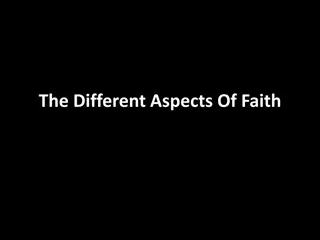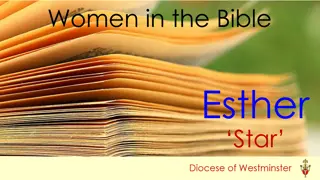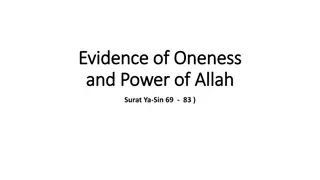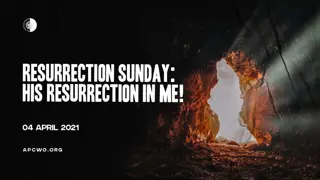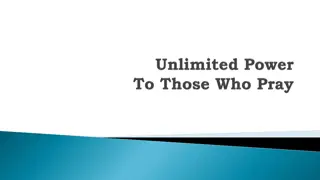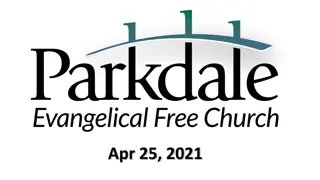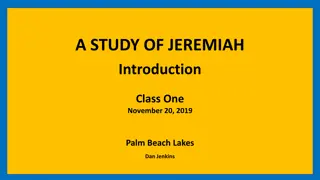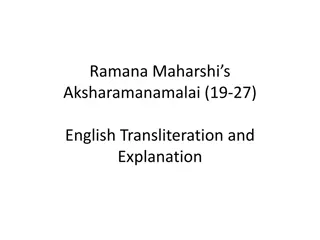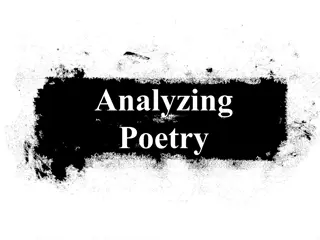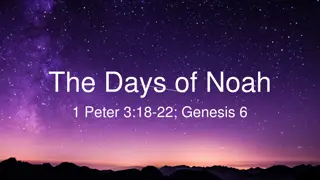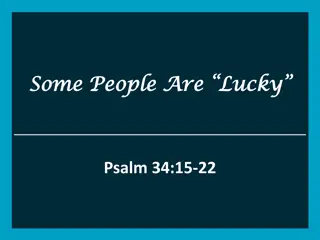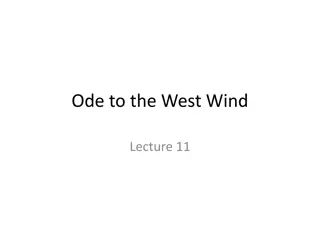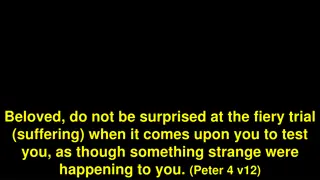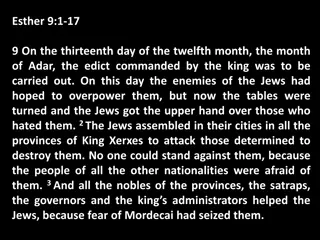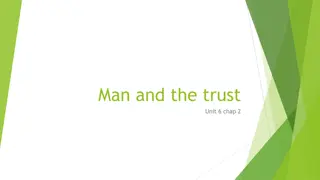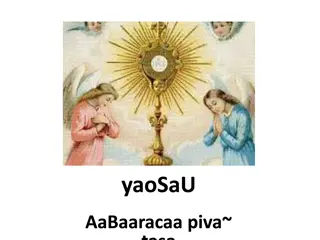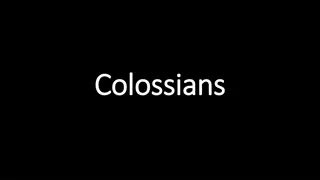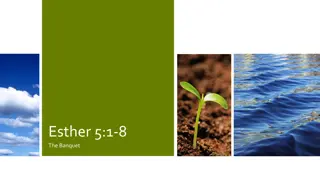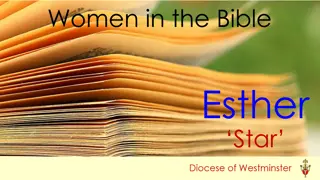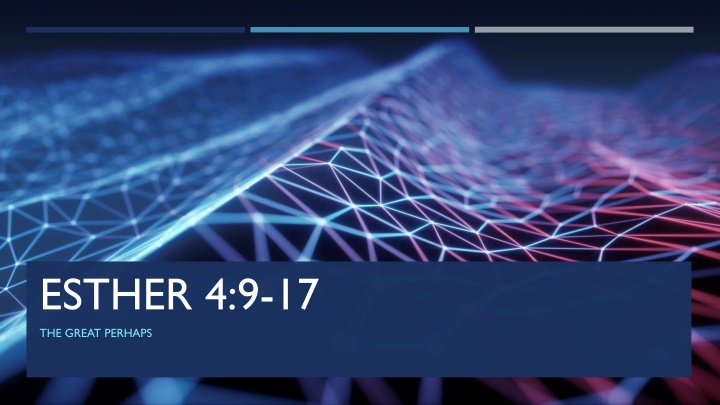
Confrontation and Decision-Making in Esther 4:9-17
Explore the narrative of Esther 4:9-17, where Esther is faced with a critical decision that could impact the fate of her people. Mordecai's message prompts her to consider the risks of approaching the king without an invitation. Dive into the tension and uncertainty as Esther grapples with her role in potentially saving her nation.
Download Presentation

Please find below an Image/Link to download the presentation.
The content on the website is provided AS IS for your information and personal use only. It may not be sold, licensed, or shared on other websites without obtaining consent from the author. If you encounter any issues during the download, it is possible that the publisher has removed the file from their server.
You are allowed to download the files provided on this website for personal or commercial use, subject to the condition that they are used lawfully. All files are the property of their respective owners.
The content on the website is provided AS IS for your information and personal use only. It may not be sold, licensed, or shared on other websites without obtaining consent from the author.
E N D
Presentation Transcript
ESTHER 4:9-17 THE GREAT PERHAPS
Sackcloth and Ashes Bringing the matter to the court of public opinion Lament for the possible annihilation of a nation MORDECAI MORNS, ESTHER WANTS TO CLOTHE HIM, AN EMISSARY IS SENT TO INQUIRE ABOUT THE MATTER, INSTRUCTIONS ARE GIVEN TO THE EMISSARY TO READ TO AND EDUCATE THE QUEEN. THIS WEEK WE WILL SEE HOW A RELUCTANT QUEEN DEALS WITH THE ISSUE.
9 HATHACHWENT AND TOLD ESTHER WHAT MORDECAI HAD SAID. 10 THEN ESTHER SPOKE TO HATHACHAND GAVE HIM A MESSAGE FOR MORDECAI, SAYING, What Mordecai had said: 1. Confrontation between him and Haman 2. Historical enmity between Israel and Haman s people (The Amalekites) 3. The frequent interrogations by other people at the gate about his refusal to pay obeisance to Haman 4. His disclosure to them that he was a Jew 5. Their report to Haman about Mordecai Jewishness 6. Haman s plan to claim his revenge against Mordecai and the historic enemies of his people 7. The edict written to all 127 provinces, signed and sealed by the king s signet ring 8. How the news had been received with consternation and great lamentation throughout the empire 9. A copy of the specific edict drafted for Susa, and how that edict had been received by people in the citadel 10. A specific request for Esther to go to the king and disclose her Jewishness in order to save the nation. The hope of an entire people group now rests on Esther. Will she step up and be counted?
11 11ALL THE KINGS SERVANTS AND THE PEOPLE OF THE KINGS PROVINCES KNOW THAT IF ANY MAN OR WOMAN GOES TO THE KING INSIDE THE INNER COURT WITHOUT BEING CALLED, THERE IS BUT ONE LAW ALL ALIKE ARE TO BE PUT TO DEATH. ONLY IF THE KING HOLDS OUT THE GOLDEN SCEPTER TO SOMEONE, MAY THAT PERSON LIVE. I MYSELF HAVE NOT BEEN CALLED TO COME INTO THE KING FOR THIRTY DAYS. Esther s response: Could it be that Mordecai expected this reaction, and felt he had to force her hand a bit through some public lamentation? Could it be that he doubted her resolve and courage? 1. Let me remind you of the law, 2. Which everyone knows: Servants, citizens, and government officials of all the provinces: 3. If anyone (man or woman) enters the inner courts without an invitation 4. There can only be an outcome to be expected: Death! 5. Unless, the scepter is given, and the life of the person spared by the king. 6. Sorry, no can do! 7. I have not been called by the king for 30 days. 8. Ask me anything else, how about new clothes?
11 11ALL THE KINGS SERVANTS AND THE PEOPLE OF THE KINGS PROVINCES KNOW THAT IF ANY MAN OR WOMAN GOES TO THE KING INSIDE THE INNER COURT WITHOUT BEING CALLED, THERE IS BUT ONE LAW ALL ALIKE ARE TO BE PUT TO DEATH. ONLY IF THE KING HOLDS OUT THE GOLDEN SCEPTER TO SOMEONE, MAY THAT PERSON LIVE. I MYSELF HAVE NOT BEEN CALLED TO COME INTO THE KING FOR THIRTY DAYS. Once again, we see the penchant of the Persians for protocols that are inflexible and heavy-handed. There is a security concern behind these regulations, however. Uninvited guests pose a threat to the King. What if their purposes are nefarious? What is this is a cue-de-tat? The interesting part here is that the Queen is treated as a guest even in her own palace. She has no access to the inner court, she is relegated to her own apartments and living quarters, and even her intimate relations with her husband are controlled by protocols. This type of emphasis on protocols could serve several purposes for the writer: 1. This is anti-Persian rhetoric, which continues the cartoonization of Xerxes we have seen before. 2. The protocols make the task of speaking to the King a dangerous affair for Esther. The more impossible the task appears, the more heroic her response will be. 3. The concentration on unbreakable protocols, gives Esther an easy out, which Mordecai will challenge in the next verse. Perhaps the writer is creating the context into which Mordecai s wisdom will shine brightly. He will convince a reluctant Queen to do her part. This, of course, highlights his value to the story. Mordecai, the righteous Jew, will save a nation through his wise counsel to Esther!
12 -13 WHEN THEY TOLD MORDECAI WHAT ESTHER HAD SAID, MORDECAI TOLD THEM TO REPLY TO ESTHER, DO NOT THINK THAT IN THE KING S PALACE YOU WILL ESCAPE ANY MORE THAN ALL THE OTHER JEWS. This is Mordecai s Difficult Conversation with Esther: 1. Do not think that you will be spared because you are the Queen 2. Once your Jewishness is discovered, you too will be condemned 3. Do not believe the palace walls will protect you 4. Your enemies share the King s table everyday. Haman is closer to the King than you are at this moment, and he will orchestrate your demise. Look at what happened to Vashti. 5. The edict mandates the extermination of ALL Jews, and you, Hadassah, are a Jew! 6. You will not escape any more than anyone else and no status, no proximity to the king will save you. Translation: Helping your people, helps you! Turning your back on your people, will have fatal consequences for you as well. We are in this together! Mutually-assured destruction, your neglect + our neglect = the destruction of all. There is no way the math works differently here. Although Mordecai will introduce another formula in the next verse, which is very compelling.
14A FOR IF YOU KEEP SILENCE AT SUCH A TIME AS THIS, RELIEF AND DELIVERANCE WILL RISE FOR THE JEWS FROM ANOTHER QUARTER, BUT YOU AND YOUR FATHER S FAMILY WILL PERISH. Mordecai s Difficult Conversation continues: 1. If you keep silent, you and I (your father s family) will perish 2. However, relief and deliverance may come from other sources. Our nation has a great history of military revolution. We will not just wait for people to kill us. Some young Joshua or Moses-like figure will rise and fight to the bitter end. Who knows, the next Samson or Samuel may already be among us, somewhere in one of these 127 provinces. If this liberator like King David is raised, some of our people will survive. They will find a way to go on. 3. But, it will be too late for you and me. We will be among the first to be killed. They will parade our dead bodies around the city to terrorize Jews in hiding. 4. If you stay silent, you and I will die. Now, if you speak up, you may die as well, but at least you will die with your boots on. You will die knowing you tried your best to save your nation. You can die like a heroine, or you can die like a coward. Will history remember you like they remember Deborah, or will they remember you like the millions who were too afraid to fight back. Show up, Esther! Translation: Not just your life, but your legacy is at stake here! You can stand up and be counted or you can die as one of so many blurry faces no one remembers!
14B WHO KNOWS? PERHAPS YOU HAVE COME TO ROYAL DIGNITY FOR JUST SUCH A TIME AS THIS. Mordecai s Difficult Conversation arrives at its most compelling argument 1. Have you forgotten the odds, Hadassah? There were 400 beautiful girls, many of them more beautiful than you, 2. Yet, you found favor with the King s Eunuch. He gave you preferential treatment. 3. Although you were not a tribute from a wealthy family and came with no endowment to increase the King s treasury, you found favor in his eyes. You of all people! Look at yourself now. 4. Could it be that you were chosen for your current position, against all odds, and with nothing to offer the king beyond your own person, for a time such as this? 5. Could it be that fate/destiny/luck (God) has vested you with the power you do possess, so that one day you might be another Moses, saving your nation from extinction. 6. Of what benefit is your newly found power, if you are not willing to use it? YOU ARE THE QUEEN! Have you forgotten this? If you die, let your death mean something. Let it be a catalyst that gives our men the courage to fight. Translation: Have you ever asked yourself why you were chosen over the other 400? Well, the answer if staring you on your face. Get up and be counted!
15-16 THEN ESTHER SAID IN REPLY TO MORDECAI, GO, GATHER ALL THE JEWS TO BE FOUND IN SUSA, AND HOLD A FAST ON MY BEHALF, AND NEITHER EAT NOR DRINK FOR THREE DAYS, NIGHT OR DAY. I AND MY MAIDS WILL ALSO FAST AS YOU DO. AFTER THAT I WILL GO TO THE KING, THOUGH IT IS AGAINST THE LAW; AND IF I PERISH, I PERISH. The Reluctant Queen is Finally Convinced 1. This would have been the perfect place for Esther to show some Jewish religious fervor. But no where does the text say what the fast seeks to accomplish: Petition to God for her safety as she breaks the law. Ordering a fast, without specific mention of God, to whom all fasts are offered, has angered many who dislike this book. The LXX at this point is filled with references about God, but the word does not appear in the Hebrew Manuscript. 2. Those uncomfortable about this fact do as we have done in this class at various points, we have directed our attention to the invisible hand of God. Although not mentioned, we believe God acts behind the scenes, It is understood that fasting is done before God and to request God s help. So, even though God s name is not directly mentioned, Esther is involved in a religious observance meant to supplicate God s mercy. (Source unknown.) Prayer and fasting went together in time of sorrow or anxiety or penitence. So David (2 Samuel 12:16), Ahab (1 Kings 21:27), Daniel (Daniel 9:3). (Cambridge Bible Commentary.) "Though 'God' and 'prayer' are not here mentioned, it is yet obviously assumed that it was before God that the Jews were to humble themselves, to seek His help, and to induce Him to grant it. (Keil and Delitzsch Biblical Commentary.) 3. Could the absence of the word God point to a pluralistic, polytheistic, practice of Purim when the book was written? Could this be a God-free book, which speaks to Jews without alienating other peoples for whom this festival would have become a custom? I don t think so, but the truth is that we don t know.
17 MORDECAI THEN WENT AWAY AND DID EVERYTHING AS ESTHER HAD ORDERED HIM. Change in tone 1. Everything Esther Ordered 2. Since she was willing to act as a Queen, Mordecai accepted the request as an order. 3. If I perish, I perish: although my danger be great and evident, considering the expressness of that law, and the uncertainty of the king s mind, and that severity which he showed to my predecessor Vashti; yet rather than neglect my duty to God, and to his people, I will go to the king, and cast myself cheerfully and resolutely upon God s providence for my safety and success. (Matthew Poole s Commentary.) Reflection: Why me? What is the time such as this in my life? What is it that God wants us to do, but we have been too careful, too scared, too reluctant to do?

